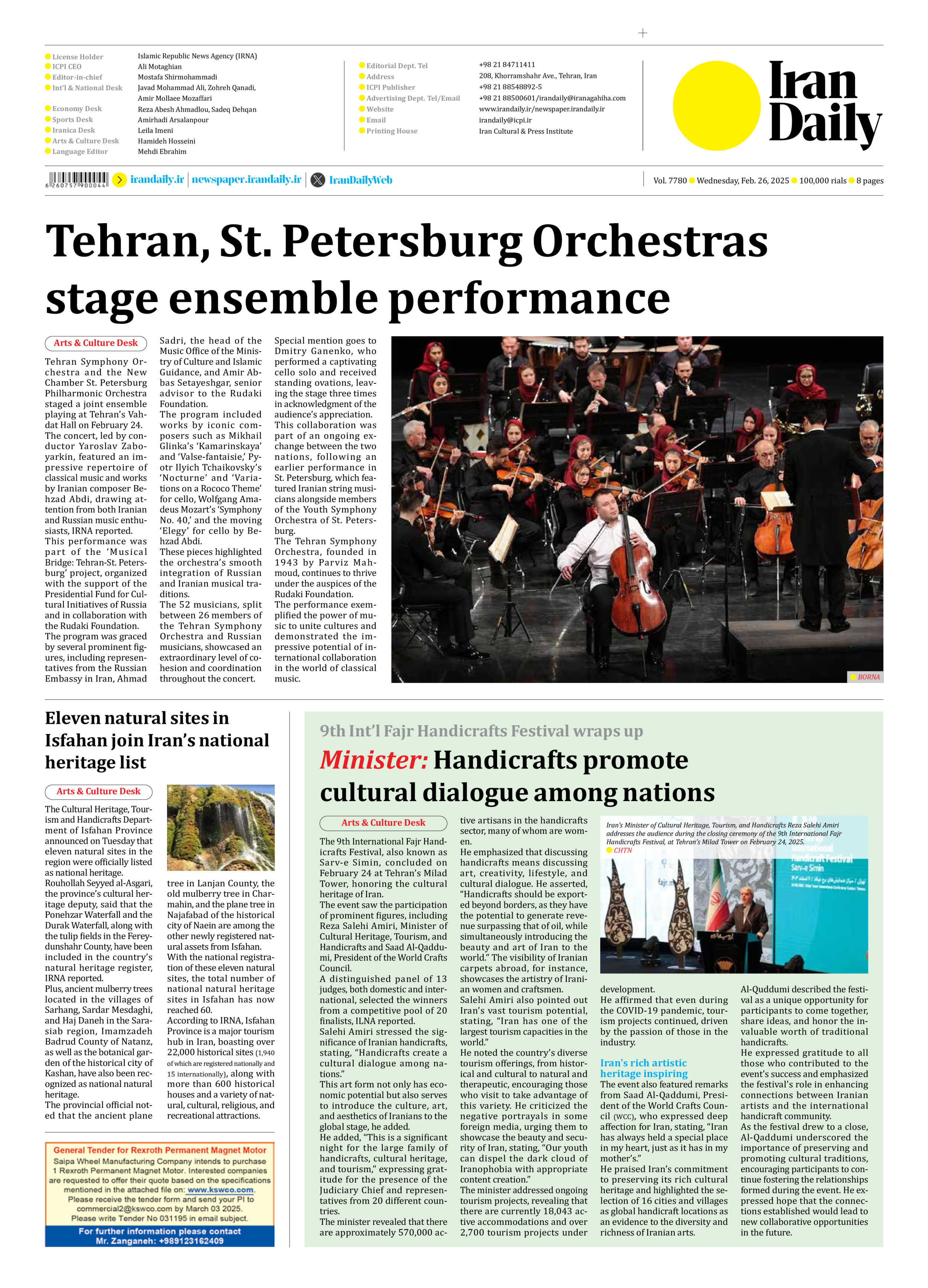
Tehran, St. Petersburg Orchestras stage ensemble performance
Tehran Symphony Orchestra and the New Chamber St. Petersburg Philharmonic Orchestra staged a joint ensemble playing at Tehran’s Vahdat Hall on February 24.
The concert, led by conductor Yaroslav Zaboyarkin, featured an impressive repertoire of classical music and works by Iranian composer Behzad Abdi, drawing attention from both Iranian and Russian music enthusiasts, IRNA reported.
This performance was part of the ‘Musical Bridge: Tehran-St. Petersburg’ project, organized with the support of the Presidential Fund for Cultural Initiatives of Russia and in collaboration with the Rudaki Foundation.
The program was graced by several prominent figures, including representatives from the Russian Embassy in Iran, Ahmad Sadri, the head of the Music Office of the Ministry of Culture and Islamic Guidance, and Amir Abbas Setayeshgar, senior advisor to the Rudaki Foundation.
The program included works by iconic composers such as Mikhail Glinka’s ‘Kamarinskaya’ and ‘Valse-fantaisie,’ Pyotr Ilyich Tchaikovsky’s ‘Nocturne’ and ‘Variations on a Rococo Theme’ for cello, Wolfgang Amadeus Mozart’s ‘Symphony No. 40,’ and the moving ‘Elegy’ for cello by Behzad Abdi.
These pieces highlighted the orchestra’s smooth integration of Russian and Iranian musical traditions.
The 52 musicians, split between 26 members of the Tehran Symphony Orchestra and Russian musicians, showcased an extraordinary level of cohesion and coordination throughout the concert.
Special mention goes to Dmitry Ganenko, who performed a captivating cello solo and received standing ovations, leaving the stage three times in acknowledgment of the audience’s appreciation.
This collaboration was part of an ongoing exchange between the two nations, following an earlier performance in St. Petersburg, which featured Iranian string musicians alongside members of the Youth Symphony Orchestra of St. Petersburg.
The Tehran Symphony Orchestra, founded in 1943 by Parviz Mahmoud, continues to thrive under the auspices of the Rudaki Foundation.
The performance exemplified the power of music to unite cultures and demonstrated the impressive potential of international collaboration in the world of classical music.







